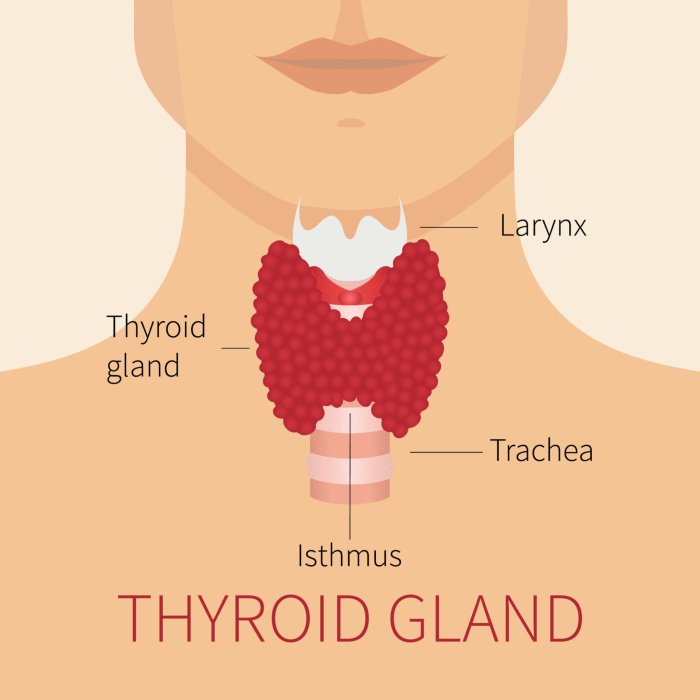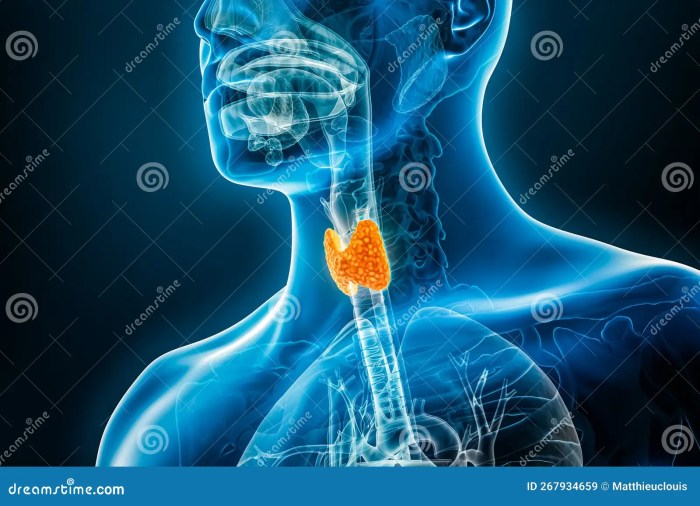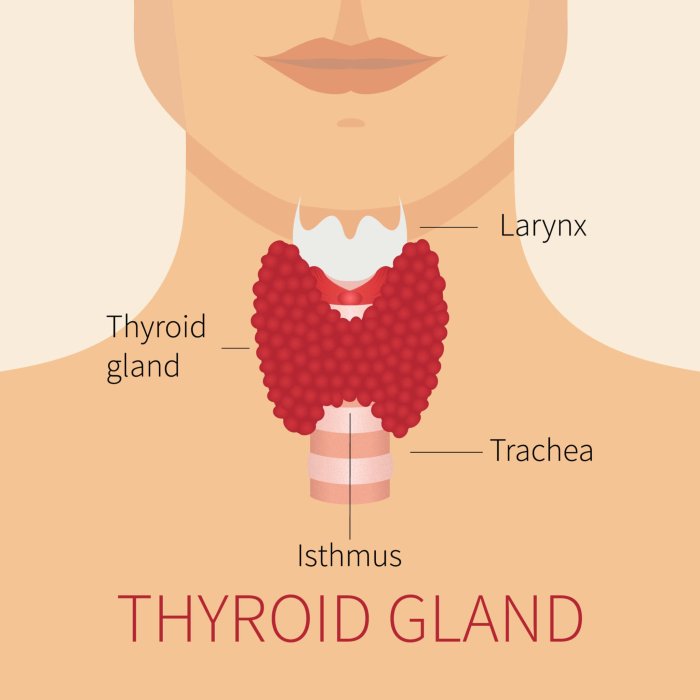Does drinking water help you lose weight? This intriguing question delves into the surprising ways hydration can influence your body’s metabolism, appetite, and overall calorie intake. We’ll explore the science behind how water impacts your body’s functions and whether it can truly be a key player in your weight loss journey. From boosting metabolism to managing cravings, we’ll uncover the potential benefits and separate fact from fiction.
This comprehensive guide will examine how water affects your metabolic rate, digestion, and calorie burning. We’ll look at the connection between water intake and feelings of fullness, and how it might influence your cravings. Furthermore, we’ll explore how hydration impacts exercise performance and the common misconceptions surrounding water and weight loss.
Hydration and Metabolism
Staying hydrated is crucial for overall well-being, and its impact on metabolism is significant. Proper hydration plays a vital role in optimizing bodily functions, influencing how your body utilizes energy and processes nutrients. This section will delve into the detailed mechanisms through which water affects your metabolic rate, digestion, and calorie burning, highlighting the importance of adequate hydration for weight management.
Water’s Effect on Metabolic Rate
Water is essential for numerous biochemical reactions within the body. These reactions, collectively known as metabolism, are responsible for converting food into energy. Adequate hydration helps maintain optimal metabolic function. Water acts as a solvent, facilitating the transport of nutrients and oxygen to cells, enabling efficient energy production. A properly hydrated body is more efficient at processing and utilizing calories, ultimately influencing your metabolic rate.
Water’s Role in Digestion and Absorption
Water is an indispensable component of the digestive process. It aids in the breakdown of food, enabling enzymes to perform their functions effectively. Water helps in the formation of digestive juices, crucial for the breakdown of carbohydrates, proteins, and fats. This breakdown facilitates the absorption of essential nutrients from the food we consume. The presence of sufficient water in the digestive tract ensures efficient nutrient absorption, promoting optimal bodily function.
Water’s Influence on Calorie Burning
The body’s metabolic processes, which include converting food into energy, are significantly affected by water intake. The presence of sufficient water supports the body’s thermogenic processes, which are responsible for generating heat and burning calories. Studies show that even a slight degree of dehydration can reduce the metabolic rate. This is because the body diverts resources to maintaining fluid balance, potentially slowing down calorie-burning processes.
Comparison of Dehydration and Adequate Hydration on Metabolism
| Factor | Dehydration | Adequate Hydration |
|---|---|---|
| Metabolic Rate | Reduced metabolic rate due to the body’s focus on water conservation, potentially hindering calorie burning. A slightly dehydrated body may experience a drop in metabolic rate, reducing its ability to burn calories efficiently. | Increased metabolic rate as the body functions optimally. Sufficient water intake supports efficient metabolic processes, leading to an enhanced calorie-burning capacity. |
| Digestion | Impaired digestion due to reduced enzyme activity and nutrient absorption. Insufficient water can lead to sluggish digestion and hinder the breakdown and absorption of nutrients. | Enhanced digestion and absorption of nutrients. Sufficient water aids in the formation of digestive juices, facilitating the breakdown of food and optimal nutrient absorption. |
| Calorie Burning | Reduced calorie burning due to impaired metabolic function and inefficient nutrient processing. Dehydration may reduce the body’s ability to utilize calories for energy, potentially leading to a slower metabolic rate. | Increased calorie burning as the body operates more efficiently. Adequate hydration supports thermogenic processes, potentially boosting calorie burning and contributing to optimal metabolic function. |
Water and Appetite Regulation

Staying hydrated plays a crucial role in managing appetite and cravings. Water’s impact extends beyond simply quenching thirst; it significantly influences our body’s signals related to hunger and fullness. Understanding this connection can empower us to make informed choices about our water intake and achieve better control over our eating habits.Water’s role in feeling full is multifaceted. When we’re dehydrated, our bodies can sometimes confuse thirst with hunger, leading to unnecessary snacking.
Drinking water before meals can help you feel more satisfied, potentially reducing the amount of food you consume. This is because water takes up space in your stomach, creating a sense of fullness and delaying the sensation of hunger.
The Link Between Water and Feelings of Fullness
Water directly impacts the signals your body sends about fullness. By drinking water before a meal, you can increase the feeling of satiety. This can lead to eating smaller portions, and thus reducing calorie intake, which can be beneficial for weight management.
Managing Appetite with Water
Water can be a powerful tool in managing appetite. A simple strategy is to carry a reusable water bottle and sip on it throughout the day. Consciously drinking water before meals, even 15-30 minutes prior, can help you eat less. It’s a subtle but effective technique to regulate hunger pangs.
Water and Cravings
The connection between hydration and cravings is important to note. Sometimes, we mistake thirst for hunger, leading to cravings for sugary or salty snacks. Drinking a glass of water might be all it takes to quell those cravings. Pay attention to your body’s signals, and if you feel a craving coming on, try drinking a large glass of water first.
While drinking water might seem like a simple weight-loss trick, it’s actually a crucial part of overall health. Staying hydrated is important for various reasons, and for those with conditions like ankylosing spondylitis, proper hydration is vital for managing pain and stiffness. Learning about the treatment of ankylosing spondylitis can shed light on the importance of staying well-hydrated, which ultimately contributes to a healthy lifestyle.
So, next time you’re wondering if drinking water helps with weight loss, remember it’s not just about the scale; it’s about supporting your body’s functions. treatment of ankylosing spondylitis can be a great resource for understanding this connection.
It may help to address the underlying need for hydration before succumbing to the craving.
Incorporating More Water into Your Daily Routine
Drinking enough water throughout the day is key to managing appetite and controlling cravings. Here’s a table outlining practical ways to incorporate more water into your daily routine:
| Method | Description | Example |
|---|---|---|
| Carry a water bottle | Keep a reusable water bottle with you at all times. | Carry a 20-ounce reusable water bottle and sip from it throughout the day. |
| Set reminders | Use alarms or reminders on your phone to prompt water intake. | Set a reminder on your phone every hour to drink a glass of water. |
| Infuse your water | Add fruits, herbs, or vegetables to your water for flavor. | Infuse water with lemon slices, cucumber, or mint for a refreshing twist. |
| Drink water with meals | Drink a glass of water before, during, or after meals. | Drink a glass of water 15 minutes before your lunch to help with satiety. |
| Track your intake | Keep a log of your daily water consumption. | Use a water tracking app to monitor your intake and ensure you’re meeting your daily needs. |
Water and Calorie Intake
Staying hydrated is crucial for overall health, and its impact on calorie intake is often underestimated. Drinking enough water can subtly influence our eating habits and potentially contribute to weight management. This section delves into the relationship between water and calorie consumption, exploring how water can help us avoid overeating and maintain a healthy energy balance.Water plays a significant role in regulating appetite and satiety, potentially impacting our calorie intake.
While drinking water is often touted as a weight-loss aid, the truth is a bit more nuanced. Beyond simply hydrating, certain gut bacteria, like lactobacillus gasseri, play a crucial role in overall well-being, potentially influencing metabolism and fat storage. Studies on the benefits of lactobacillus gasseri show promise for digestive health, and a healthy gut might indirectly contribute to weight management.
So, while water’s importance shouldn’t be underestimated, it’s not the sole solution for shedding pounds. Focusing on a holistic approach, including hydration and supporting gut health, might be more effective in the long run.
Studies suggest that drinking water before meals can lead to consuming fewer calories. This isn’t about magically burning more calories; rather, it’s about influencing our perception of fullness and reducing the likelihood of overeating.
Impact of Water Intake on Calorie Intake
Water’s impact on calorie intake stems from its role in influencing our feeling of fullness. Often, we mistake thirst for hunger, leading to unnecessary calorie consumption. By staying adequately hydrated, we can better differentiate between true hunger and thirst cues, potentially reducing impulsive eating. This can be particularly important for those prone to emotional eating or who are not entirely aware of their body’s signals.
Evidence Supporting Reduced Overeating, Does drinking water help you lose weight
Several studies have shown a correlation between increased water intake and reduced calorie intake. One study found that individuals who drank a glass of water before meals consumed significantly fewer calories during the meal. This suggests that water can act as a natural appetite suppressant, helping us feel satisfied with smaller portions. Other research indicates that increased water intake can contribute to overall weight management by influencing food choices and portion sizes.
Water’s Role in Satiety and Reduced Calorie Consumption
Water contributes to satiety by expanding the stomach, creating a feeling of fullness. This can help us consume smaller portions and reduce the overall calorie count for a meal. The mechanism is similar to the effect of eating more fiber-rich foods, which also increase satiety. Moreover, drinking water before meals can help to dilute stomach contents, potentially making us feel fuller faster.
Mechanisms of Water Consumption Before Meals
Drinking water before meals can influence food intake through several potential mechanisms. First, it can increase the feeling of fullness, making us less likely to overeat. Second, it can improve digestion, allowing the body to process food more efficiently. Third, by making us feel more satisfied, it reduces the temptation to reach for additional snacks or indulge in larger portions.
Furthermore, the act of drinking water itself takes time, which can provide a brief delay in the start of a meal, allowing for better mindful eating. This mindful eating can contribute to a more deliberate and balanced approach to meals, potentially reducing the overall calorie intake.
Water and Exercise Performance
Staying hydrated is crucial for optimal exercise performance. Water plays a vital role in transporting nutrients, regulating body temperature, and lubricating joints. Adequate hydration is essential for maintaining energy levels and preventing fatigue during physical activity. When we don’t drink enough water, our bodies struggle to function efficiently, leading to decreased performance and potential health risks.
The Link Between Hydration and Exercise Performance
Water is essential for all bodily functions, including those involved in exercise. Proper hydration allows for efficient muscle contraction, enabling sustained performance. Water facilitates the delivery of oxygen and nutrients to muscles, helping them perform at their peak. Dehydration, on the other hand, can negatively impact exercise performance. A reduction in blood volume due to dehydration leads to decreased blood flow to muscles, impacting their ability to function optimally.
How Water Intake Improves Athletic Performance
Adequate water intake significantly improves athletic performance. It helps regulate body temperature during exercise, preventing overheating and exhaustion. Water also aids in transporting nutrients and removing waste products from muscles, promoting faster recovery. Furthermore, proper hydration helps maintain blood volume, ensuring optimal blood flow to muscles, leading to better endurance and power output.
Impact of Water on Muscle Function During Exercise
Water is a critical component of muscle tissue. It facilitates the chemical reactions within muscles, allowing for efficient contraction and relaxation. Dehydration can lead to muscle cramps, fatigue, and reduced strength. Proper hydration ensures the smooth operation of muscle cells, enabling sustained effort and optimal performance.
Effects of Dehydration on Exercise Output
Dehydration significantly impacts exercise output. Reduced blood volume restricts blood flow to muscles, hindering their ability to receive necessary oxygen and nutrients. This results in decreased endurance, power, and overall performance. Moreover, dehydration can lead to fatigue, dizziness, and headaches, further compromising athletic performance. The body’s ability to regulate temperature also suffers, potentially leading to heat exhaustion or heatstroke in extreme cases.
Comparing Hydration Levels and Exercise Performance Outcomes
Proper hydration is crucial for optimal exercise performance. The table below illustrates the correlation between hydration levels and exercise performance outcomes.
| Hydration Level | Exercise Performance | Explanation |
|---|---|---|
| Well-hydrated | High | Adequate water intake allows for optimal muscle function, efficient nutrient delivery, and thermoregulation. This results in sustained performance, improved endurance, and reduced fatigue. |
| Mildly Dehydrated | Moderate | Reduced blood volume and decreased blood flow to muscles can slightly impair performance. Endurance may be affected, and fatigue may set in more quickly. |
| Moderately Dehydrated | Low | Significant reduction in blood volume and impaired muscle function lead to reduced performance. Fatigue and cramps become more pronounced, and the ability to sustain exercise is significantly decreased. Heat exhaustion becomes a greater risk. |
| Severely Dehydrated | Very Low | Severe dehydration can lead to a complete breakdown in performance. Muscle function is severely impaired, and the body struggles to maintain core temperature. Symptoms like dizziness, nausea, and heatstroke can occur. |
Misconceptions and Common Myths
While drinking plenty of water is undeniably beneficial for overall health, it’s crucial to understand that it’s not a magic bullet for weight loss. Many misconceptions surround water and its role in weight management, leading to unrealistic expectations and potentially hindering genuine progress. It’s essential to separate fact from fiction to develop a realistic and effective weight management strategy.
Common Water-Weight Loss Misconceptions
Water is an essential component of a healthy lifestyle, but it’s not a standalone solution for shedding pounds. Many people believe that simply drinking more water will magically melt away fat, ignoring the crucial interplay between diet, exercise, and hydration. Addressing these misconceptions is vital for crafting a successful weight management plan.
- Water as a Weight Loss Miracle Cure: The idea that simply consuming more water will lead to substantial weight loss without other lifestyle changes is inaccurate. Water can play a role in supporting weight management, but it’s not a standalone solution. Weight loss is a complex process requiring a combination of factors.
- The “Water Fast” Myth: While water can be a part of a healthy diet, extreme water fasting or relying solely on water for weight loss is dangerous and unsustainable. The body needs essential nutrients for proper function, and a drastic reduction in calorie intake can lead to health problems and hinder long-term weight management.
- Drinking Water Before Meals Suppresses Appetite: While drinking water before meals can contribute to feeling full, it’s not a foolproof appetite suppressant. The extent of appetite suppression varies between individuals, and it’s not a reliable method for managing calorie intake.
- Water is a Replacement for Healthy Food Choices: Drinking water cannot replace the nutritional value of a balanced diet. Water is essential for bodily functions, but it does not provide the necessary vitamins, minerals, and macronutrients for overall health and well-being. It’s essential to prioritize a nutritious diet alongside adequate hydration.
The Role of Diet and Exercise
Effective weight management hinges on a balanced approach that encompasses diet, exercise, and sufficient hydration. Simply drinking more water is not a substitute for making healthy food choices and incorporating regular physical activity.
A balanced diet rich in fruits, vegetables, lean proteins, and whole grains provides the body with the necessary nutrients for optimal function. Regular exercise, including cardiovascular activity and strength training, plays a critical role in burning calories and building muscle mass. Combining these lifestyle factors with adequate hydration creates a holistic approach to weight management.
Why Water Alone Isn’t a Magic Bullet
Water plays a vital role in numerous bodily processes, including digestion and nutrient absorption. However, it’s not a magic bullet for weight loss. Weight loss requires a calorie deficit, achieved through a combination of reduced calorie intake and increased energy expenditure. Simply increasing water intake without addressing these crucial factors will not yield significant weight loss results.
While plenty of folks swear that drinking water helps with weight loss, the truth is a bit more nuanced. It’s definitely a good habit, but it’s not a magic bullet. On the other hand, excessive alcohol consumption can significantly impact your health, potentially increasing the risk of heart problems, like a heart attack. For example, can alcohol cause a heart attack ?
Understanding the potential risks is crucial. Ultimately, focusing on a balanced diet and regular exercise, combined with sufficient water intake, is key to sustainable weight management.
Weight loss is a complex process that necessitates a multifaceted approach incorporating dietary modifications, regular exercise, and sufficient hydration.
The Importance of a Balanced Approach
The effectiveness of weight management relies on the harmonious integration of diet, exercise, and hydration. These factors work in synergy, contributing to a healthy and sustainable weight management plan. Relying solely on water for weight loss is unrealistic and may even be detrimental to overall health. A holistic approach that includes a balanced diet, regular exercise, and adequate water intake is crucial for long-term weight management success.
Illustrative Examples

Staying hydrated is a crucial part of a healthy lifestyle, and its impact on weight management is significant. This section will delve into real-world examples showcasing the positive effects of adequate water intake on weight loss journeys. We’ll explore practical strategies for incorporating water into daily routines and highlight the importance of consistency for achieving lasting results.
A Case Study: Sarah’s Weight Loss Journey
Sarah, a 30-year-old office worker, struggled with maintaining a healthy weight. She tried various diets but saw minimal progress. Recognizing the importance of hydration, Sarah increased her daily water intake to 3 liters. Simultaneously, she made minor adjustments to her diet, opting for more fruits and vegetables. Over three months, Sarah observed a noticeable reduction in her waistline and a steady loss of 10 pounds.
This illustrates how consistent hydration, combined with slight dietary modifications, can significantly contribute to weight management.
Incorporating Water into a Healthy Lifestyle
Hydration isn’t just about drinking water; it’s about integrating it into your daily routine. This involves conscious choices to increase water consumption throughout the day.
- Carry a reusable water bottle and refill it throughout the day. This simple habit makes it easier to stay hydrated.
- Add flavour to your water with fresh fruits or herbs, making it more appealing and enjoyable.
- Drink a glass of water before each meal. This can help you feel fuller, reducing the likelihood of overeating.
- Choose water-rich foods such as cucumbers, watermelon, and strawberries to increase your daily fluid intake.
Consistency: The Key to Weight Management
Maintaining a consistent water intake is essential for optimal weight management. Fluctuations in water consumption can affect metabolism and appetite regulation, hindering weight loss progress.
- Aim for a consistent daily intake of water. A general recommendation is to drink half your body weight in ounces of water per day.
- Schedule regular water intake throughout the day, rather than waiting until you feel thirsty. Thirst is often a sign that you’re already dehydrated.
- Create a routine for drinking water at specific times, such as with breakfast, lunch, or before bed.
Healthy Hydration Habits and Strategies
Developing healthy hydration habits can contribute significantly to a weight loss journey. These habits emphasize mindful consumption and long-term adherence.
- Track your water intake using a water bottle with markings or a hydration app. This allows you to monitor and adjust your intake accordingly.
- Set reminders on your phone to drink water at regular intervals throughout the day. This helps establish a routine.
- Use visual cues to remind you to drink water, such as placing a water bottle prominently on your desk.
A Scenario: John’s Water-Focused Weight Loss
John, a 45-year-old professional, sought to lose weight. He incorporated a new habit: drinking a glass of water 30 minutes before each meal. This reduced his overall food intake by approximately 100-150 calories per meal, without significantly altering his diet. Over six weeks, John lost 5 pounds, highlighting how mindful hydration can complement a weight loss plan.
He also reported feeling less hungry and more energetic.
End of Discussion: Does Drinking Water Help You Lose Weight
In conclusion, while drinking water isn’t a magic bullet for weight loss, it plays a crucial role in a healthy lifestyle. Adequate hydration can support your metabolism, help manage appetite, and potentially influence calorie intake. It’s essential to combine consistent water intake with a balanced diet and regular exercise for optimal results. Ultimately, the key to successful weight management lies in understanding the synergistic effects of hydration and a holistic approach to wellness.




